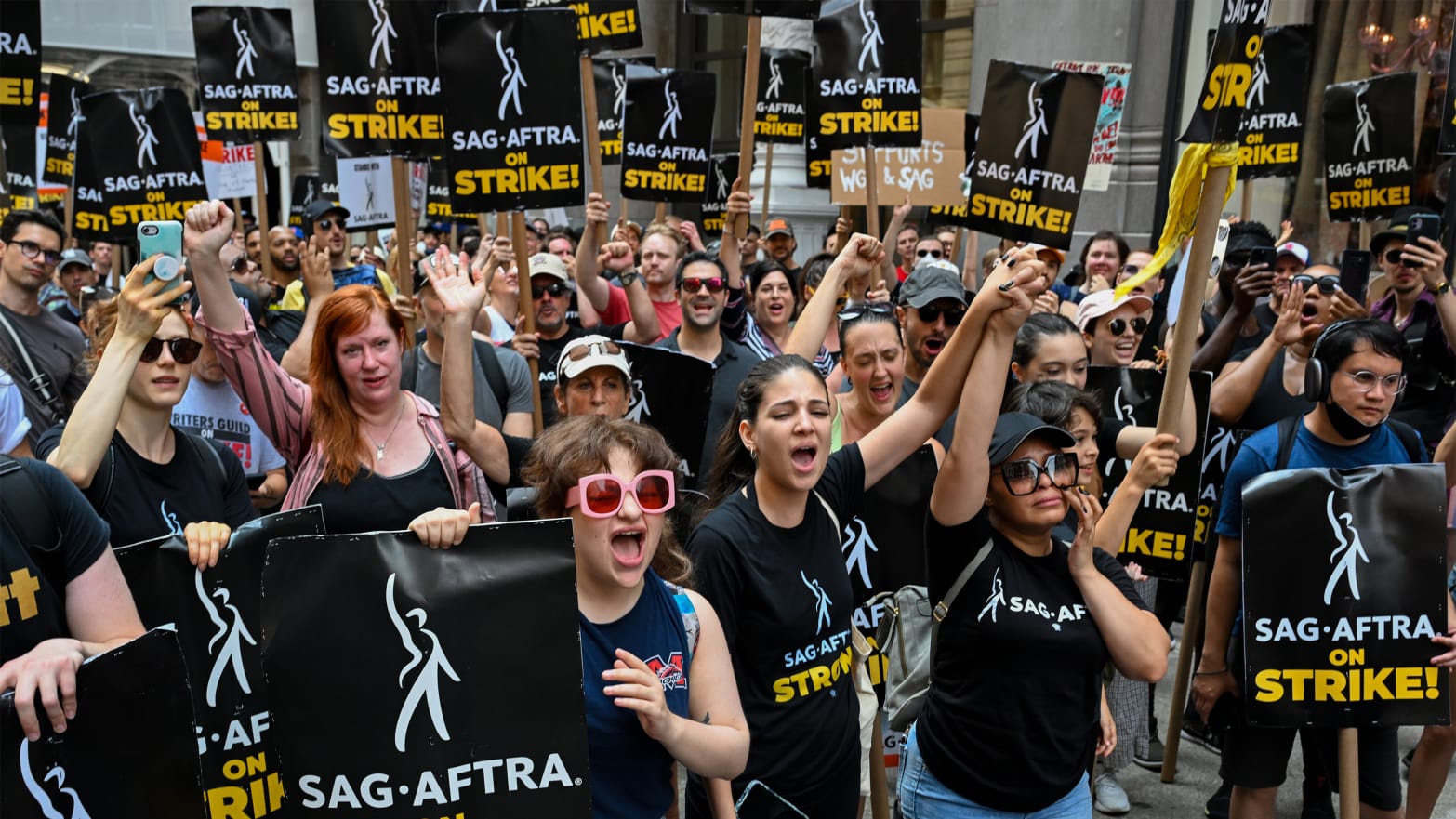It’s different this time.
The Writers Guild of America (WGA) and the Screen Actors Guild (SAG-AFTRA) are each on strike against the studios and streamers regarding streaming residuals, abuses of writers, artificial intelligence, and more. Many of the demands of both unions are issues that have not been updated in decades.
Meanwhile, studios and streamers’ CEO compensations are the highest in history: Last year, Warner Bros. Discovery chief David Zaslav made $246.6 million; Disney’s Bob Iger made $45.9 million; and Paramount Global CEO’s Bob Bakish made $32 million. These individuals make more money per year than almost any entertainment executive before them. Just a small portion of each major CEO’s annual salary could cover the cost of the guilds’ reasonable structural and financial demands, and yet, they say it’s not possible.
How could that be?
Because it’s not about the money. It’s about power and perception.
Almost none of these CEOs built the companies they run. We are not negotiating with Jack Warner or Walt Disney. We’re not even negotiating with the people who enriched these companies, like producer Robert Evans at Paramount in the 1970s. These CEOs are basically people who just work there—and who have contracts that allow them very large amounts of money.
And right now, they don’t want anyone to know that. They don’t want anyone to know that they don’t actually build anything. They don’t want anyone to see them capitulate and bend the knee to any degree by making a deal with the writers and actors who build the product they fund and distribute. They don’t want to reasonably negotiate with these artists, because they think it will make them look weak. They think it will make them look like chumps, make them look simply like the employees of these companies that they are.
It’s the wrong attitude. It’s not the attitude of their predecessors. The people before them, at least outwardly, had a professional humility regarding both their positions and the need for the artists. They understood that association with a great film or series was the pinnacle of all this hard work. And the contracts were made to reflect that, such as the 1960 SAG agreement that established residuals, pensions, and health insurance for its members. Now, the CEOs give the air of factory owners pissed off that their “workers” aren’t making “the stuff” they need for their shelves. And this lack of humility, this lack of acceptance that they merely fund and/or distribute these fantastical packages of writing, directing, acting, and all the rest, will be their downfall.
At some point, they stopped caring about the films and series, and put their eye exclusively on their company’s stock price. And, as Emmy Award-winning writer Lila Byock stated recently about the majority of projects made, “The reason it’s so hard to make anything original today is that originals force studio executives to cede their power to creatives. Sequels & franchises put the executives in charge.”
The degenerative slide of the film business took the following path: The studios forgot their own competitive advantage of having relationships with writers, directors, actors, and crew members. The streamers forgot that they’re visitors here, and soon after arriving, they “pivoted” and shucked the let-the-artists-have-full-creative-reign position with which they began. The studios then started chasing the streamers’ business model and lost billions of dollars doing it. And now, both the studios and the streamers think they can win against encroaching generative AI video tech companies—and I’m telling you these GAI companies are going to eat their lunch.
And they’ll do this primarily by feeding in 100 years of films and TV series into GAI models, in order to deliver spoonfuls of Frankenstein-like characters, tones, and stories. Everything from Alfred Hitchcock’s films to M*A*S*H episodes to Citizen Kane. I personally feel a very strong responsibility to these past writers, directors, actors, and crews. I owe them more than I could ever return. They have fed me emotionally, creatively, and professionally. Not only has much of this work been instrumental to my own filmmaking (Antonioni and Fellini, I’m looking at you), but it is because of these past professionals’ sacrifices that any of us have union benefits at all.
All of this greed and competition by the studios and streamers will crater this industry and will destroy a century-old business. And if that happens, these CEOs will go down in history as the ones who, when they had the football—passed down from decade to decade—not only lost the game, but they burned down the entire stadium.
For all this ego-fueled obstinacy, that will be their legacy.

